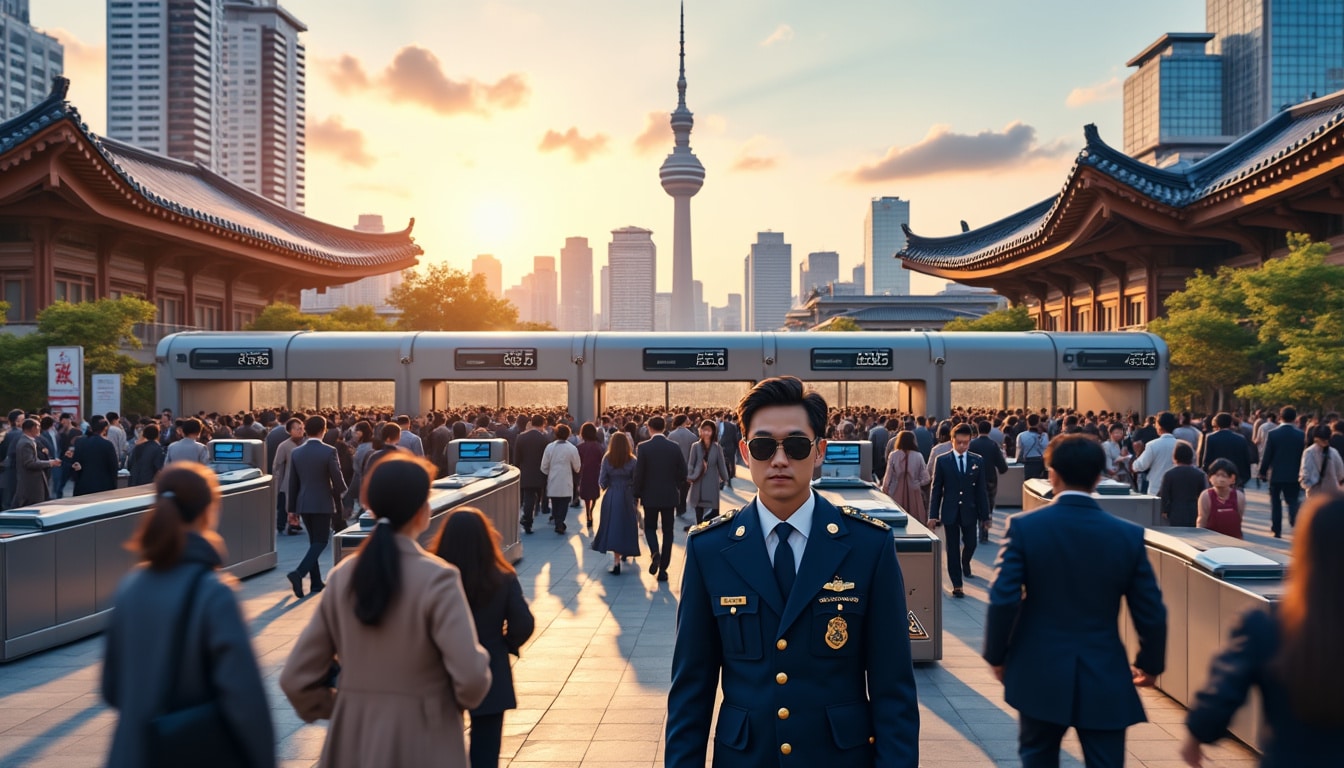Exploring the prospects of traveling to Seoul can be an exhilarating journey into the heart of South Korea, a vibrant metropolis teeming with culture, innovation, and unforgettable experiences. However, for those who have a criminal record, the complexities of entering the country demand careful navigation and understanding of the Korean immigration process. At the crossroads of legality and travel, understanding the impact of one’s criminal status on entry to Seoul is crucial. This article unravels the intricate web of regulations, guidelines, and strategies to ensure a seamless transition into South Korea’s gateway, spotlighting the pivotal role of the Seoul Immigration Office and various other institutions.
The Role of Korean Immigration Policies
Seoul, a marvel of urban innovation, draws visitors from around the world. Yet, gaining entry into this bustling hub is a process regulated by strict policies, especially for those holding a criminal record. The journey begins at the nexus of legal frameworks laid out by South Korean authorities. Key stakeholders such as the Korean Ministry of Justice and Korean Border Control play pivotal roles in managing these protocols.
For individuals with a criminal background, the question looms: How will their past influence their future travel plans? The answer pivots around the severity of the conviction and the specific entry requirements set forth by South Korea. Some criminal convictions, such as drug-related offenses, violent crimes, or fraud, might significantly hinder entry prospects. Meanwhile, minor offenses may warrant more lenient consideration, provided adequate documentation is presented.
To navigate these waters, the Criminal Records Bureau becomes a vital resource. Prospective travelers should anticipate background checks and prepare to disclose their criminal history transparently on visa applications. Honesty in this regard is paramount, as failure to disclose past convictions is treated severely, potentially leading to visa denial or legal repercussions.
Understanding Visa Considerations
The visa application process for those with a criminal record requires a good depth of comprehension and foresight. Prospective visitors should leverage the resources offered by the Seoul Visa Services to understand which visa categories might permit entry despite past infractions.
- 🏷️ Honesty is the best policy: Ensure full disclosure of your criminal history on visa applications.
- 📄 Documentation: Gather relevant legal documents such as court records or rehabilitation proofs.
- 🗣️ Consulting legal experts: Engage with immigration attorneys familiar with Korean immigration law for advice.
- ⏰ Plan ahead: Submit visa applications well in advance to accommodate potential processing delays.
An application that underscores rehabilitation and positive societal contributions post-conviction can positively sway decision-makers. In scenarios where entry denials occur, the Visa Issuance Confirmation System offers a platform for appealing decisions. Applicants can submit additional documents and explanations, allowing for a review by Korean authorities.
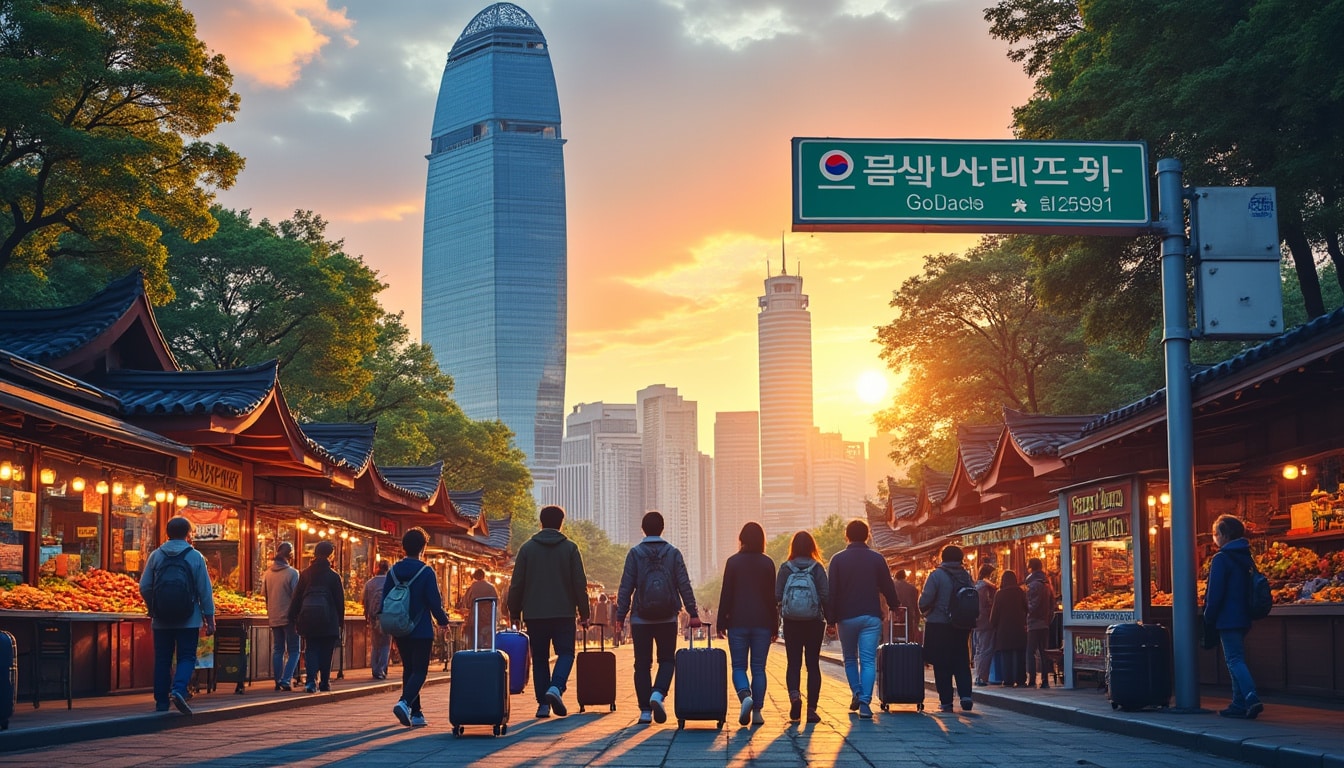
Legal Proceedings and the On-Ground Reality
While legal pathways exist to facilitate travel to Seoul, the real-life experience can often be complex. A notable case study involves a foreign national who, despite being on an E-2 visa, found himself embroiled in legal complications following an altercation. Providing a window into the operational dynamics within the Korean National Police Agency, this situation underscores the delicate balance between legal rights and immigration consequences.
| Offense Severity | Potential Outcome in Korea | Recommended Action |
|---|---|---|
| Minor Offenses | Possible entry with explanations | Disclose fully & seek legal help |
| Serious Convictions | Likely entry denial | Provide rehabilitation evidence |
When a criminal charge is brought forward, even if minor, it can quickly escalate to an exit order or an entry ban, highlighting the need to meticulously address every step of the legal process. The key recommendation is to take proactive measures in negotiating fine reductions and liaising with victims if applicable. The Seoul Legal Aid Center becomes a pivotal ally in navigating these challenges, offering vital support in crafting settlement agreements that can hold weight in immigration deliberations.
Impact of Criminal Record on Access to Korean Experiences
Seoul isn’t just a city—it’s an experience. From historical palaces to cutting-edge technology, the opportunity to immerse oneself in Korean culture entails more than mere entry through immigration. However, those with a criminal record must consider how they navigate and enjoy these cultural landscapes, mindful of any restrictions imposed by their legal status.
The streets of Seoul may present a rich tapestry woven with traditional and contemporary threads, but immigration statuses can dictate the extent to which these experiences are accessible. Legal stipulations may restrict certain activities, overshadowing the exploration of landmarks or indulging in Korea’s culinary offerings.
For example, a traveler with a criminal record may be barred from specific government or cultural facilities, or face limitations in professional engagements within the city. The role of privacy and security protocols governed by the Seoul Metropolitan Government ensures these restrictions are not only adhered to but are a reflection of broader national security measures.
- 🏯 Respect cultural sites: Adhere to any special restrictions in place.
- 👩💼 Professional encounters: Verify any professional events and regulations.
- 🍜 Local cuisine: Some local dining venues may have entry limitations based on status.
In adapting to these constraints, consultations with the Seoul Entry Services can provide clarity and equip travelers with updated guidelines on experiences that might require prior approval or lawful compliance checks.
Strategies for Rehabilitation and Positive Storytelling
With potential restrictions due to a criminal record, the narrative of rehabilitation and growth becomes indispensable. This section delves into how thoughtful storytelling about transformation and responsibility can not only affect visa outcomes but also redefine personal narratives positively.
In emphasizing rehabilitative efforts, elements such as certificates of rehabilitation or notable character references can corroborate one’s commitment to societal reintegration. Such documentation effectively acts as a testament during immigration evaluations.
| Rehabilitative Action | Benefits |
|---|---|
| Certificates of Rehabilitation | Strengthen visa applications |
| Character References | Demonstrate societal contributions |
Engaging in community service or initiatives shows tangible evidence of change and can aid in presenting a case that aligns with Korean regulations. Leveraging these positive elements can play a crucial role in altering perceptions and overcoming potential barriers to entering Seoul.
Future Outlook and Considerations
As we navigate the landscape of 2025, policies continue to evolve, shaped by global events and national priorities. For prospective travelers with a criminal record, staying informed about changes in immigration laws is vital. Engaging with resources such as the Korea Criminal Law Society and participating in informational seminars hosted by embassies can offer timely insights.
In capturing the future vision of traveling to Seoul, a proactive approach to legal compliance, coupled with the presentation of a rehabilitative journey, opens pathways previously restrained by past impediments. Strategic planning, informed decision-making, and consultation with legal experts lay the groundwork for what lies ahead.
- 📚 Stay updated: Regularly review changes in immigration policy.
- 🌍 Engage with experts: Collaborate with immigration advisors and legal professionals.
- 🔍 Search and learn: Utilize accessible online resources for real-time updates.
With an optimistic lens, the capabilities to traverse the vibrant avenues of Seoul are within reach, fostering a future where every journey marks a beginning of new chapters, rather than the conclusion of past episodes.
FAQ
- What if my criminal record is minor? ➡️ Individuals with minor offenses might still gain entry, especially with proof of rehabilitation and compliance.
- How long before I should apply for a visa? ➡️ It’s recommended to apply well in advance, at least six months prior to travel, accounting for any additional processing needed.
- Are there specific visas available for those with a criminal record? ➡️ Special consideration visas may be available, but they require detailed documentation and disclosure during the application process.
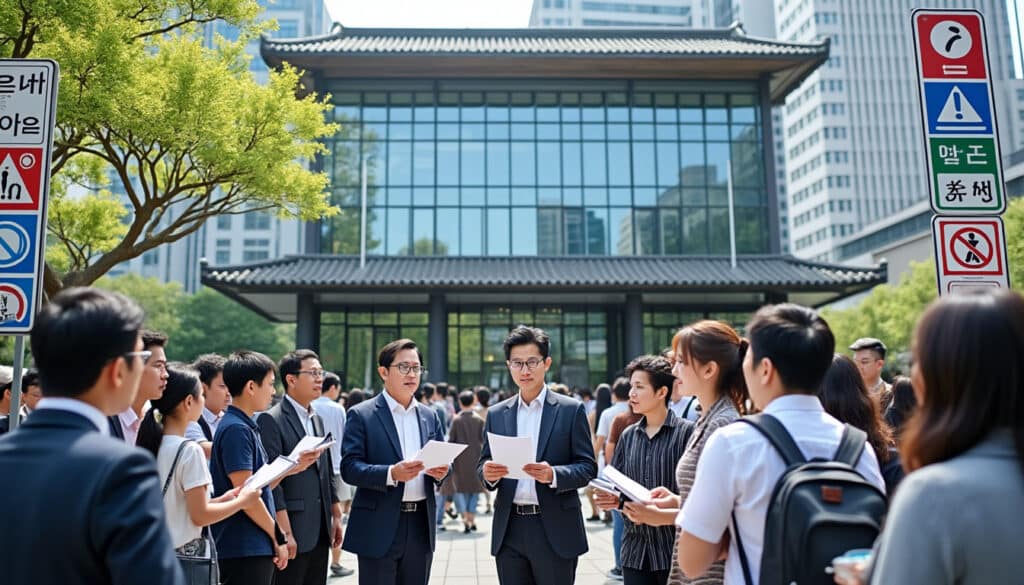
Legal Information and Rules in Seoul
Seoul, a bustling metropolis and a hub of cultural and business activities, is steeped in an intricate web of legal systems. Understanding the legal landscape here is crucial for both residents and visitors alike, as it affects everything from everyday…
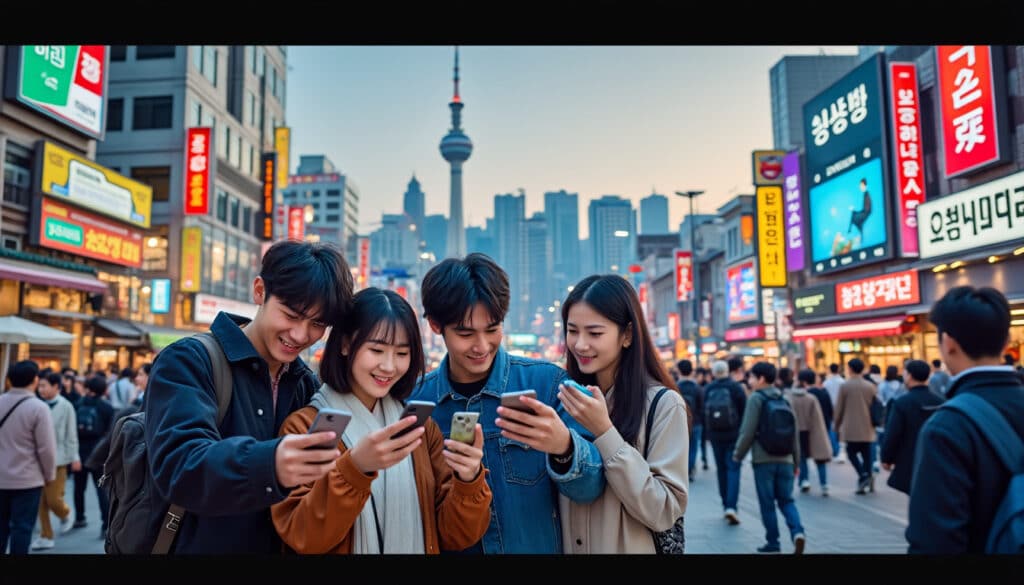
Calling and communication rules in Seoul
As Seoul continues to thrive as a bustling metropolis that harmonizes tradition with the adrenaline rush of modernity, understanding its unique communication nuances becomes essential for every traveler and expatriate. The intricate social protocols and communication etiquettes prevalent in Seoul…
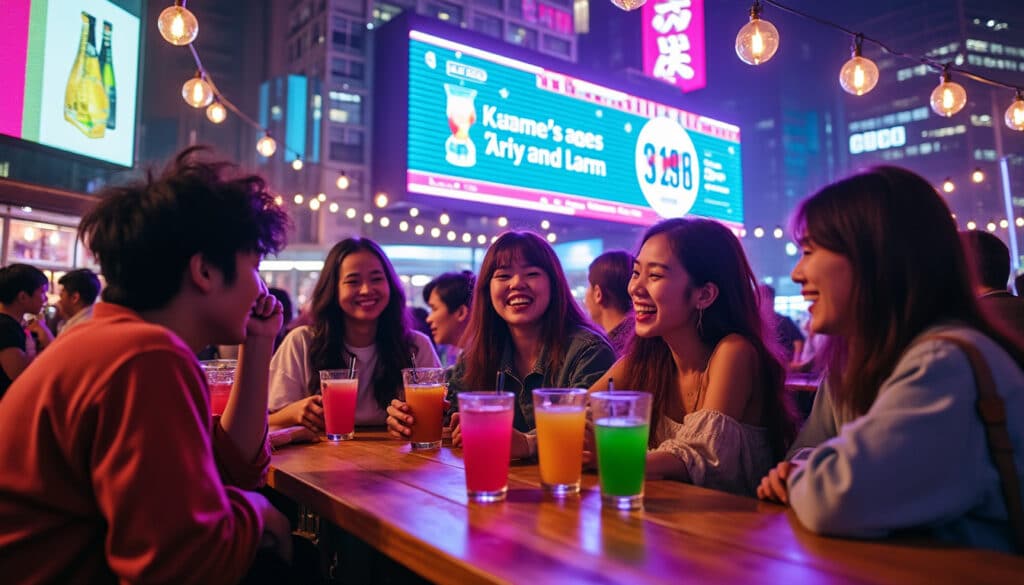
Drinking and age restrictions in Seoul
In the vibrant landscape of Seoul, where neon signs illuminate bustling streets and the aroma of street food fills the air, understanding the intricacies of age-related restrictions becomes crucial, especially for those looking to partake in the city’s dynamic nightlife.…

Seoul, the vibrant heartbeat of South Korea, orchestrates a symphony of cultural and historic charm throughout the year, drawing visitors from all corners of the globe. Known for its dynamic blend of tradition and modernity, Seoul’s holiday calendar is a…
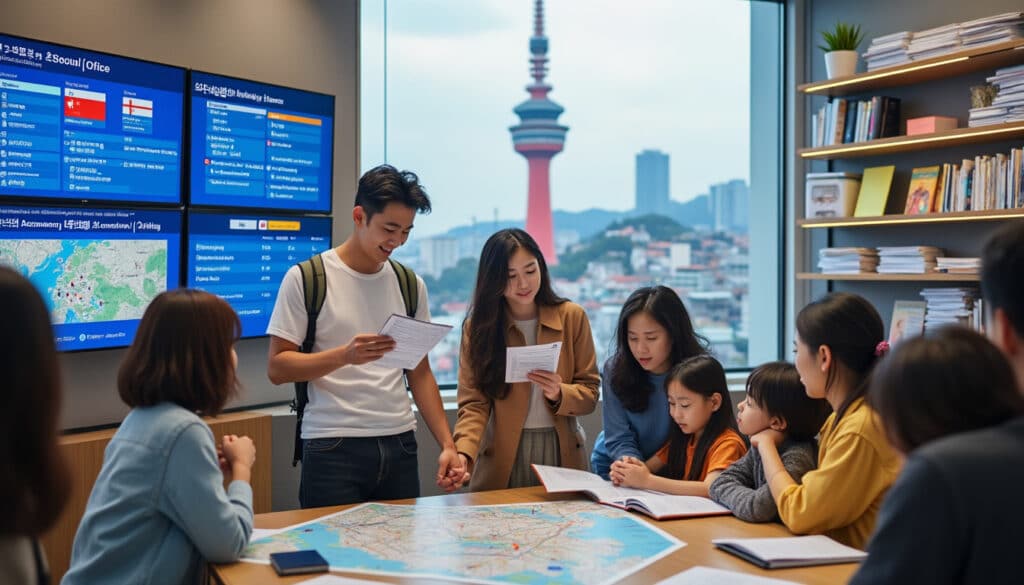
Relocating to Seoul, the bustling heart of South Korea, is a dream for many, entwined with visions of rich cultural experiences, modern innovations, and vibrant city life. However, before embarking on this transformative journey, understanding the legal and logistical intricacies…

Smoking, drugs, and red light laws in Seoul
Seoul, a city where tradition meets modernity, is not only vibrant and diverse but also strictly governed by a set of comprehensive laws, particularly when it comes to smoking, drugs, and red light districts. For those unfamiliar with South Korea’s…
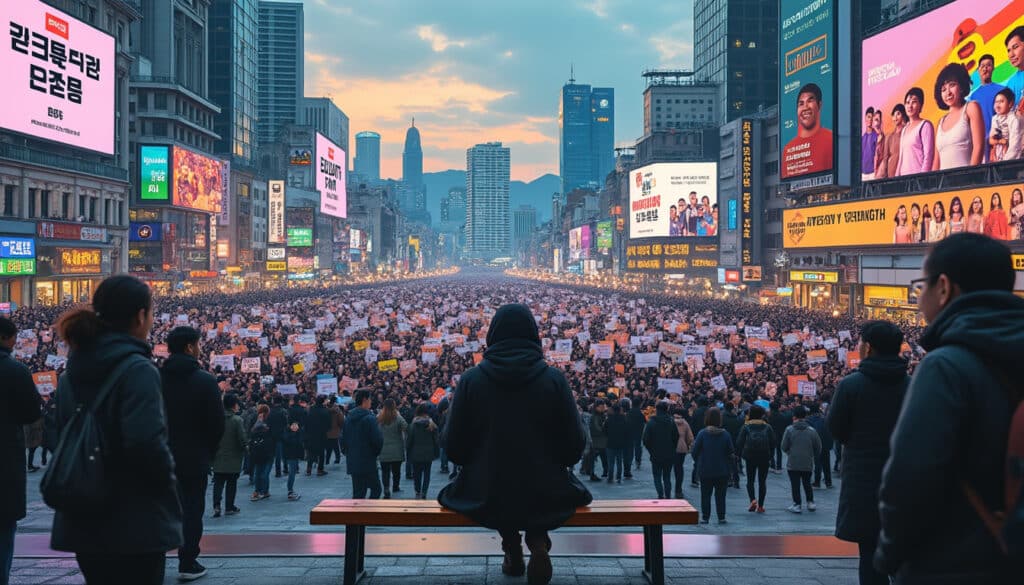
Social and discrimination issues in Seoul
The bustling metropolis of Seoul, with its towering skyscrapers and vibrant cultural scenes, is not just a hub of technology and fashion. It is also a microcosm of the broader social and discrimination issues that permeate South Korean society. From…

